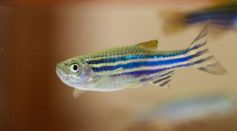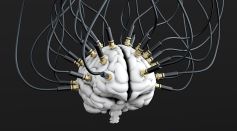Tags: National Institutes of Health

Unique Network of Proteins Restores Hearing in Zebrafish Through Cell Regeneration

Noninvasive Brain Stimulation Leads to Memory Improvements in Older Adults, Study Reveals

US Gov’t COVID-19 Pandemic Response Includes $67-M Budget for Scripps Research
NIH Funds $125M for Tissue Mapping Centers for Cellular Senescence to Study Lymphoid Organs

NIH Director: “Masks Are Not Optional” in Slowing the Coronavirus Spread
NIH Wants 10,000 Volunteers to Study the Pervasiveness of Coronavirus in the US: How to Qualify?
US Government Finally Banning Chimp Research
$7.5 Million Grant Awarded To Start Clinical Trial For Alzheimer’s
Hookah Leads To Increased Probability Of Smoking Cigarettes Amongst Teens
Study Says An Unhappy Marriage Is Bad For a Woman's Heart
Most Popular

Starlink Satellite Explodes in Orbit; SpaceX Confirms It'll Re-Enter Earth

Aurora Phenomenon: How Geomagnetic Storms and Space Weather Are Lighting Up the World

Ocean Warming Explained: Why Climate Science Shows Sea Temperature Rise Is Speeding Up

How Wildfires Start, Spread, and Ignite: Understanding the Causes and Fire Behavior Clearly





